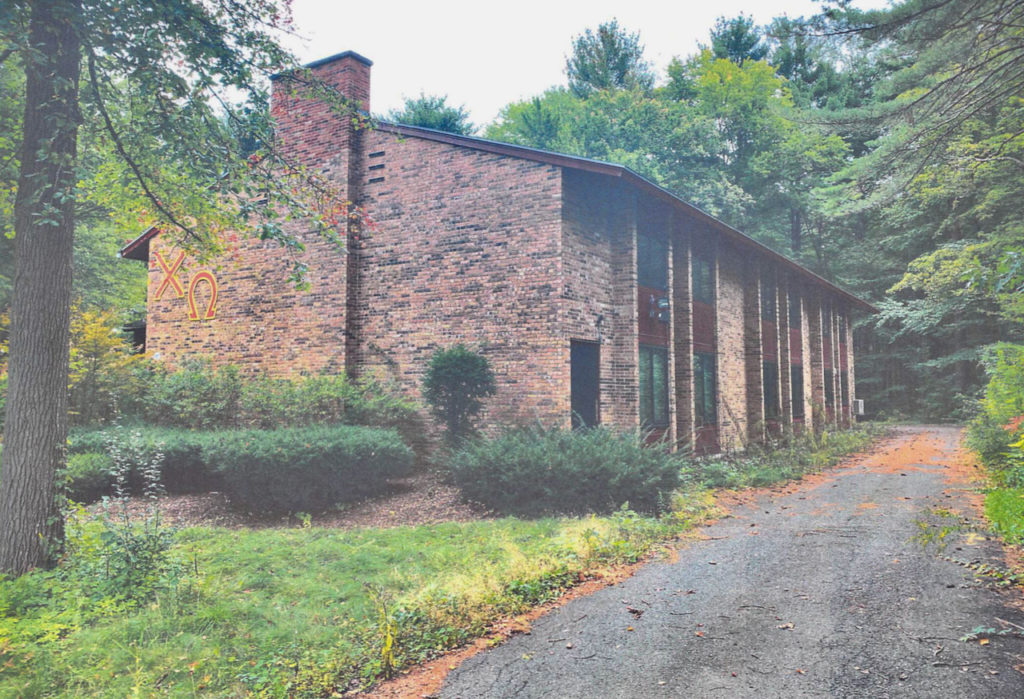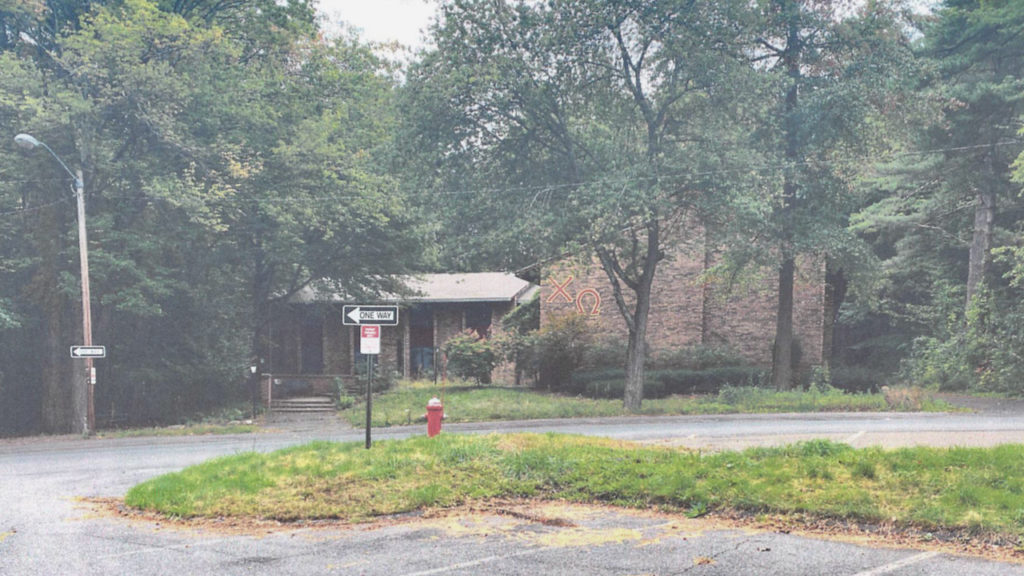Historical Commission Approves Demolition Of Chi Omega House

The Chi Omega sorority house at 47 Olympia Drive. Photo: Hilda Greenbaum
Report On The Meeting Of The Amherst Historical Commission, January 12, 2022
The meeting was held on Zoom and was recorded.
Present
Commissioners Jane Wald (Chair), Pat Auth, Katherine Davis, Jan Marquardt, Hetty Startup, Becky Lockwood (Robin Fordham, absent)
Staff: Ben Breger, Staff Liaison
Should This Building Be Saved?
The Historical Commission held a public hearing on the question whether the Chi Omega sorority house at 47 Olympia Drive can be demolished to make way for more student apartments. David Williams and Kyle Wilson of Archipelago Investments seek a demolition permit for this 1971 brick structure in order to build six more buildings similar to the ones they built next door at 57 Olympia Drive. All buildings more than fifty years old are subject to review and a demolition delay imposed for up to one year if, after a public hearing, the Commission determines that it is worth preserving according to criteria found in Article 13 of our zoning bylaw. The condition on the demo permit is section 13.4120: under Geographic Importance: “The site is part of, or related to, a square, park, or other distinctive area “

Chi Omega was one of three “Greek” houses constructed in a fraternity/sorority park established on Olympia Drive off East Pleasant Street, just south of the north fire station. Beginning in 1920, Chi Omega members resided at 315 Lincoln Avenue until it was destroyed by fire, just at the time the park for 12 such houses was being developed. The project never took off. At the time, it was said,
it was too far and off the “beaten path” for students to want to live there. The University found other uses for two houses: a student career center and an admissions office, though forty Chi Omega members continued to live there through 2020 when it was sold to the current owners.
Though the submitted application cites “poor condition,” as the reason for the proposed demolition, when asked, Wilson said that he had replaced windows and that the building had been well maintained but has out-lived its useful life. He opined that new buildings would bring more revenue to the town and provide much-needed student housing for about another 230 students in six more five-story buildings for a total of 12 buildings on the one acre site.
As there was no public comment, the Commission discussed the criteria (Section 13.4) for imposing a demolition delay: Is it a “significant structure?” There seeming to be an undercurrent in members’ remarks that this perfectly good, well-maintained building could provide housing perhaps for other needy populations, and the chair advised the board that they could not consider any possible future use of the site in their decision to delay demolition.
Questions Raised By The Commissioners
- Are there other examples of this style “Greek” house? In Amherst? Elsewhere? Is it unique? The commissioners determined that they did not know and that more study was needed.
- Does the architecture represent anything, is it representative of other “Greek” housing?
- Is the architect known?
- Why did UMass propose a Fraternity park? An area for “Greek” life?
- Is anything about the house characteristic of the style of an era?
- Can any of the façade be incorporated into the new building?
With 2 yes, 3 no votes and one abstention the commissioners determined that the building has no historical significance. And knowing nothing about the architect of the building, Auth noted that the “context” of the building is significant but not enough information is available to answer the question of its significance. The only known fact is that it is not listed on any inventory of historical buildings, local, State or Federal. Staff had no idea how to find answers to the questions posed.
There were 3 Yes votes, 2 No with one abstention for the question of geographic importance, enough to impose a demolition delay. The Commission mulled continuing the hearing for a month to seek answers to questions about “significance;” but no one seemed willing to find the time to do it, although funds are available to hire a consultant.
After pleas from the developer that time is money and that demolition delay has real world repercussions, and that Chi Omega wants some of the bricks, the Commission voted to approve demolition of Chi Omega provided it is fully documented using the Mass. State Historical Commission Form B before any demolition can occur.
